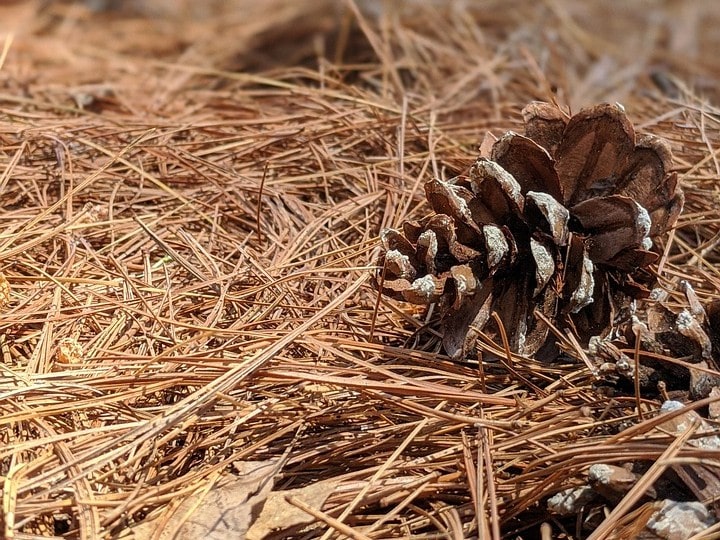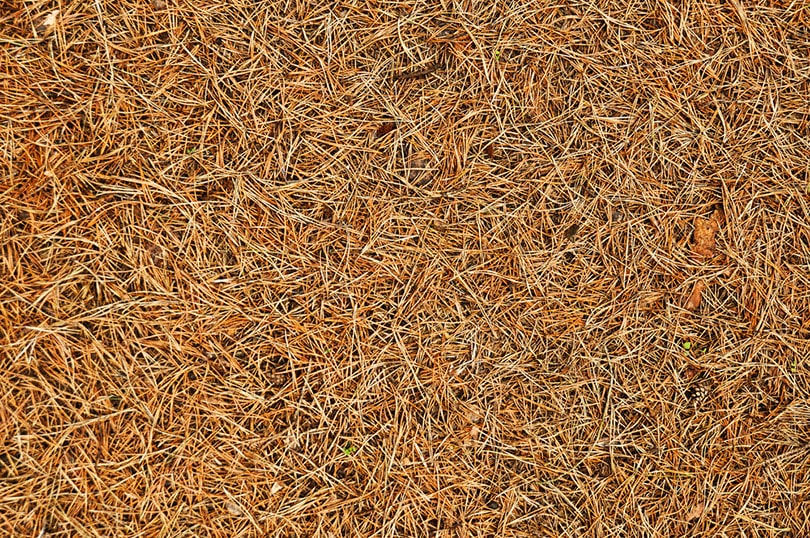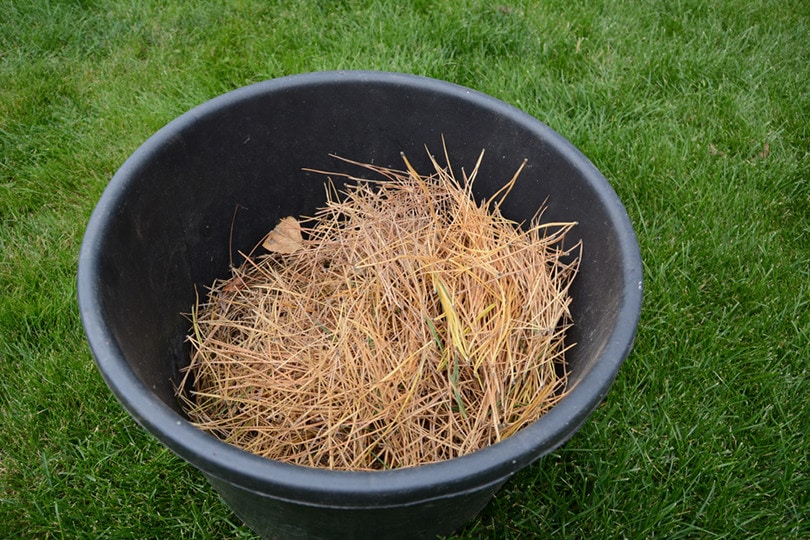Are Pine Needles Good for Compost? What You Need to Know!
-
Kristin Hitchcock
- Last updated:

You can safely add a small number of pine needles to most compost piles. However, you should preferably keep the ratio under 10%. Pine needles count as a “brown” material, so they are a great way to add balance to your pile. However, you can use too many of them and halt the composting process if you are not careful.
Pine needles decompose very slowly. You don’t want to use them as a lot of your pile, or they may decompose even slower. For the best results, be sure to mix them in with a variety of other items.
Are Pine Needles Too Acidic to Compost?
There is some misinformation out there that pine needles are too acidic to compost. It is true that green pine needles are acidic when they fall off the tree. However, they lose much of this acid as they turn brown. Therefore, the pine needles you’re adding to your pile likely aren’t that acidic and they should not change the pH of your compost all that much. In the end, most pine needles have a fairly neutral pH.
It takes about 3 weeks after leaving the tree for pine needles to lose their acidity. You can set the needles aside and wait for this period to be reached before adding them in. However, this is not necessary. They compost very slowly and will not add much acid to the compost within those 3 weeks, anyway.
If you’re worried about the acid level in the compost, you can get a soil pH meter. These are pretty inexpensive and easy to use. It’s always good to have one on hand just in case you need to test the pH of the soil.

Using Pine Needles in Your Compost
On top of being completely safe to use, pine needles are also very beneficial to your compost pile—for the most part.
One of the main problems many composters face when using pine needs is that they break down over time. Unlike leaves, they do not disappear in one season. In a natural setting, it can take years for pine needles to break down. Therefore, they are not something that you can easily compost by any means.
When you’re trying to compost, you need a lot of moisture so that the microbes can activate and do their job. However, pine needs are quite dry. Therefore, you should balance out their dryness by using other items that are high in moisture.
Furthermore, they also have a relatively poor structure. They can compact quite easily, which removes air pockets. You want airflow throughout the pile, as it prevents smells and encourages decomposition. Pine needles do not provide any of this structure, which is exactly why we do not recommend using too many of them in a single pile. However, the pine needles do provide some structure to the soil after they are broken down—they just aren’t going to help much before then.
Pine needles do not include many nutrients. However, they contribute to the part of the soil that helps retain water and minerals. While they don’t make good soil themselves, they are an important part of good, effective soil.

Rules for Composting Pine Needles
To ensure that your pine needles decompose efficiently and lead to productive soil, there are a few rules that you’ll want to keep in mind. Keep these things in mind when composting pine needles:
- Only use 10%. Typically, you only want to use about 10% pine needles in the whole compost pile. They can be a useful part of the soil. However, they are not the only thing you need.
- Add plenty of green materials. Pine needles are a very “brown” compost material so you’ll want to add plenty of greens to contribute to the moisture and nutrient content of the soil. Plus, pine needles don’t provide any structure, so you’ll need some structure-adding items as well.
- Watch for contamination. Pine needles can easily hold onto contaminates since they have a large surface area. Therefore, you should be wary of pine needles from an unknown source. Typically, you don’t want to use pine needles that didn’t come from your property for composting. They could contain heavy metals, pesticides, and other contaminants.
- Mix them well. Don’t just throw all of the pine needles on the top and call it a day! Instead, you’ll want to mix them well into the compost pile. They don’t hold much structure or compost quickly on their own, so it is vital that you surround them with other materials.
- Consider using a separate bin. Because pine needles take so long to decompose, you may want to use a separate bin for the first stage. Otherwise, you could slow down the composition in your main bin by a lot. Instead, consider composting them part of the way in a separate location and then adding them to the main bin.
Conclusion
There is no reason why you should completely avoid pine needles in compost. If you have a bunch of pine trees, they can be an easy way to add organic materials to the compost pile. However, you should not use them excessively and ensure that you have plenty of other material in the compost bin as well.
The main problem with pine needs is that they take a long time to break down. As you might imagine, this can slow down the overall composting rate of your pile, which is never a good thing. If used within reason, they should not affect the overall time that much.
When they do break down, they can add to the quality of the soil.
See also:
Featured Image Credit: arrowmaze, Pixabay
Contents
